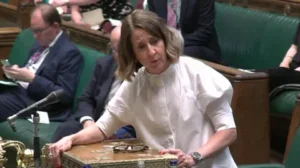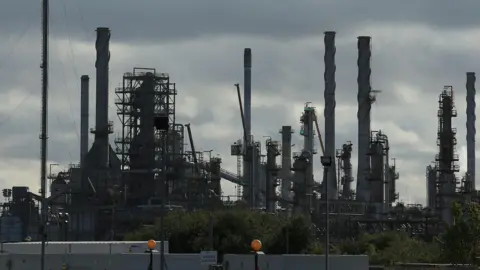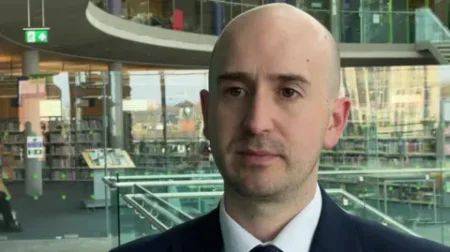The situation concerning the Prax Lindsey Oil Refinery has escalated into a significant crisis, raising concerns about the potential loss of hundreds of jobs. The refinery, located in Immingham, North East Lincolnshire, has recently filed for administration, which has triggered urgent demands from various quarters for a thorough investigation into the circumstances surrounding its insolvency. Prax Lindsey Oil Refinery Limited, which is under the ownership of Prax Group, reported its insolvency on a recent Sunday, resulting in the appointment of an official receiver to oversee the process.
According to initial reports, there are approximately 420 employees at this facility. However, the union representative, Unite, estimates that including contractors and supply chain workers, the total number of jobs at risk could reach around 1,000. This alarming statistic has prompted the UK government, represented by Energy Minister Michael Shanks, to call for an immediate inquiry into the management practices of the refinery’s directors. Shanks expressed his concerns about the workers, noting that they had been “badly let down” by the current situation and emphasizing the necessity for an investigation into the conduct that led to this financial predicament.
The Prax Group, which is helmed by chairman and CEO Sanjeev Kumar Soosaipillai, had acquired the Lindsey Oil Refinery from the French firm Total in 2021. Since then, financial difficulties plagued the refinery, which reportedly suffered losses approximating £75 million from the time of acquisition until February 2024. The situation was exacerbated by the company’s apparent inability to satisfactorily address repeated financial inquiries from the energy department, igniting concerns over fiscal transparency and responsibility.
Sharon Graham, the general secretary of Unite, articulated her deep concerns regarding the pivotal nature of the Lindsey Oil Refinery for both local employment and national fuel security. She criticized the government’s inaction, stating that its policies had brought the oil industry to a precarious position, ultimately calling for immediate governmental intervention to safeguard jobs and fuel supplies. Graham insists that the government must develop a short-term measure that would ensure the plant remains operational while also formulating a sustainable long-term strategy for the future of oil and gas workers in the region.
In response to the unfolding crisis, the consultancy firm FTI Consulting has been appointed to assist the official receiver throughout the liquidation process. While FTI Consulting acknowledged the employment figures, they maintained a policy of not providing further comment on the specifics of the case. Meanwhile, Teneo has taken on the role of administrator for State Oil, the parent company of Prax Group, which also oversees operations of several petrol stations across the UK and Europe. Teneo’s Clare Boardman indicated that the administration team would explore all available options, including the potential sale of the group’s upstream business and retail operations.
Given that the Lindsey Refinery is recognized as the smallest oil refinery in the UK, its proximity to the Phillips 66 Humber Refinery—more established and profit-generating—adds to the competitive landscape. The operational future of the Lindsey facility is murky, with the government under pressure to act swiftly to mitigate the economic fallout of this corporate turmoil.
The community in Immingham and its workforce now await further developments, hoping for decisive action from both the government and company directors to address the uncertainties surrounding their employment and the refinery’s viability in the long term. As the situation continues to evolve, stakeholders are keenly watching how decisions made in the coming days will shape the future of jobs and fuel supply in the region.











